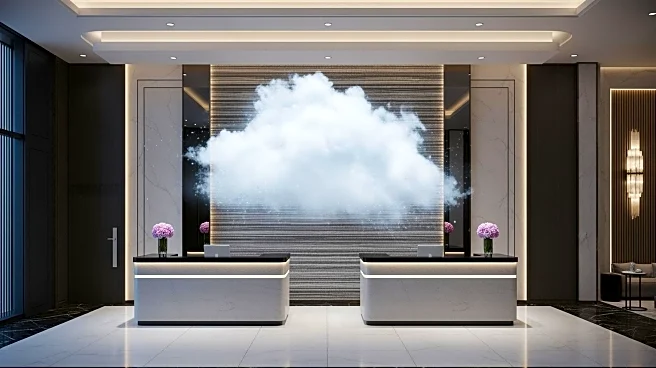What's Happening?
Mews Hospitality Cloud has introduced a series of technological advancements aimed at streamlining hotel operations and enhancing guest experiences. The latest updates, part of the Mews Summer Release,
focus on creating seamless and personalized experiences for guests while improving back-office operations. Key features include ID and selfie verification during online and kiosk check-in, digital key access through partnerships with ASSA ABLOY, and smarter guest profiles powered by AI. These innovations are designed to reduce friction during check-in and check-out processes, personalize guest interactions, and automate communications based on guest profiles. Mews aims to transform hospitality by integrating technology that operates in the background, allowing hotel staff to focus on delivering memorable experiences.
Why It's Important?
The integration of invisible technology in hotel operations is significant as it addresses common pain points in the hospitality industry, such as lengthy check-in processes and impersonal guest interactions. By automating these processes, hotels can enhance guest satisfaction and operational efficiency. The ability to personalize guest experiences based on data insights can lead to increased customer loyalty and repeat business. Additionally, the use of digital keys and AI-driven guest profiles represents a shift towards more sustainable and efficient hotel operations, reducing the need for physical key cards and manual data entry. This technological evolution is crucial for hotels looking to remain competitive in a rapidly changing industry.
What's Next?
As Mews continues to develop its Hospitality Cloud, hotels may increasingly adopt these technologies to modernize their operations. The focus on personalization and automation is likely to expand, with more hotels integrating AI and digital solutions to enhance guest experiences. Stakeholders in the hospitality industry, including hotel chains and technology providers, may collaborate to further innovate and refine these systems. The ongoing evolution of hotel technology could lead to new standards in guest service and operational efficiency, influencing industry practices globally.
Beyond the Headlines
The adoption of invisible technology in hospitality raises questions about data privacy and security, as guest information is increasingly digitized and stored. Hotels must ensure compliance with data protection regulations to safeguard guest data. Additionally, the shift towards automated processes may impact employment in the industry, as certain roles become less reliant on manual tasks. However, this could also create opportunities for staff to focus on higher-value interactions with guests, enhancing the human element of hospitality.








